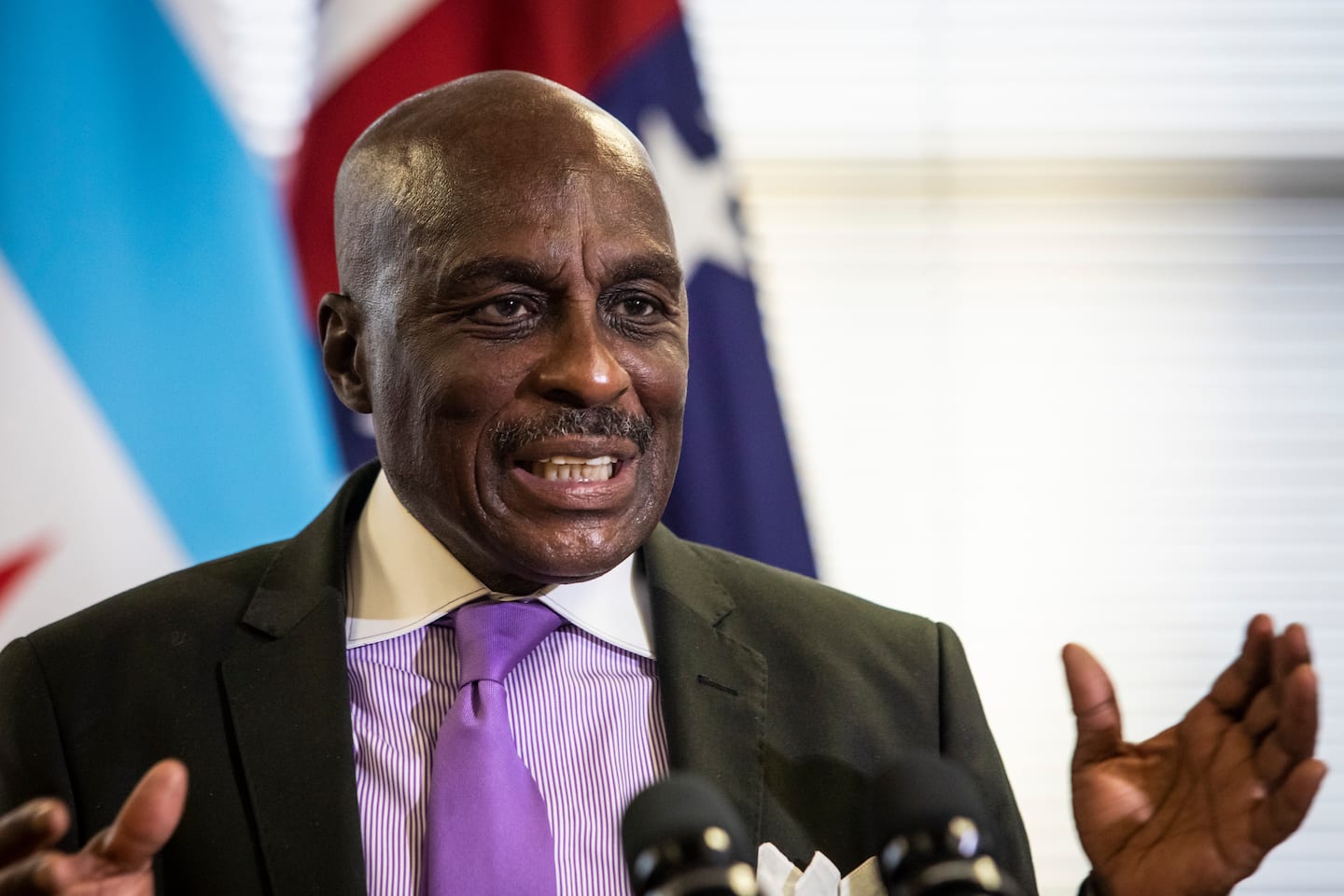How vaccines meant for a poor neighborhood might have ended up at Chicago’s Trump Tower

As Sean Connery’s character declared in “The Untouchables,” “He pulls a knife, you pull a gun. He sends one of yours to the hospital, you send one of his to the morgue. That’s the Chicago way.”
In covid times, there’s a new manifestation of the Chicago Way: vaccines as patronage.
Over the past few weeks, readers of Block Club Chicago, a scrappy news website, have been riveted by its reporting on Loretto Hospital, a 122-bed facility on the city’s West Side. Tiny by big-city standards, Loretto serves a mostly Black and poor neighborhood.
You never hear much about Loretto, compared with Chicago’s gleaming downtown medical facilities or Cook County Health, the sprawling public center where my mother worked in the country’s first blood bank.
But it only makes sense, given its location, that Loretto’s supply of coronavirus vaccines should have been distributed to West Side residents, who are among those hit hard by the virus and who have struggled to find shots.
Instead, to quote the song, Loretto broke some rules, and its neighbors were left singing the blues. More than once, I’ve gasped while reading Block Club’s tales of the audacity at Loretto, later confirmed by fallout from the revelations.
On March 10, employees at Chicago’s Trump Tower, miles east of Loretto, and in another economic strata, got vaccinated with shots from Loretto, long before many of the recipients would have been eligible.
Then, it turned out that Cook County judges and their spouses also received some of Loretto’s vaccines. So did staff at a luxury jewelry store and a steakhouse in the Gold Coast, one of the city’s ritziest neighborhoods, as well as members of a suburban church and the family of a Loretto doctor.
How did this all happen? It’s the ultimate illustration of another Chicago saying: “I know a guy who knows a guy.”
All these places and people had connections to Loretto. The hospital’s chief operating officer, physician Anosh Ahmed, lived in a Trump Tower condo. According to Block Club, he shopped at the jeweler and ate at the steak house.
Apparently, he decided that he’d take care of his friends, neighborhood needs aside.
Meanwhile, a doctor whose health system has ties to the hospital allegedly gave out shots to 10 relatives in January, when there were strict limits on who could receive vaccines.
Now, the collective game has been found out, and the consequences are being felt. Ahmed has resigned, and the chief executive at Loretto, George Miller, will be put on a two-week, unpaid suspension as soon as a replacement for Ahmed is found.
Residents on the West Side want Miller out. Chicago’s mayor, Lori Lightfoot, has cut off fresh vaccine supplies to Loretto, meaning neighbors have to visit other sites to get their shots.
Lightfoot is calling for an independent investigation to figure out who got Loretto’s shots.
Said the mayor, “They need to come clean about every instance in which vaccine has been committed to people that don’t fit into that West Side footprint.”
For Lightfoot, the Loretto scandal is one more headache in what has been a terrible year in a city that’s notoriously difficult to run.
Along with every economic and social dilemma that big-city mayors have faced in the pandemic, Chicago has been awash in a carjacking crime wave, and looting last summer forced the temporary shutdown of big swaths of downtown and even closed Lake Shore Drive.
To cut her a little break, Chicago isn’t the only place where there’s been covid-related patronage. New York Gov. Andrew M. Cuomo (D) reportedly steered coronavirus tests to friends and family when swabbing was scarce. Wealthy Floridians who supported Gov. Ron DeSantis (R) supposedly received vaccines that should have gone to others.
But fighting for city residents is Lightfoot’s responsibility, one that Loretto’s higher-ups apparently felt they didn’t share. That arrogance is the kind of thinking that the mayor has to stop, whether it’s embedded in the “Chicago way” culture or not.
On Tuesday, Vice President Harris is visiting Chicago to focus on “vaccine equity” and to see a program the city says has helped boost vaccination rates from 18 percent to 50 percent among Black and Latino residents.
Along with touting the good news, the mayor needs to be open with Harris about the Loretto scandal as an example of the pitfalls that can hamper vaccination programs. Lightfoot can’t simply lock it away like vaccine stored in a freezer. Otherwise, Loretto-style patronage is bound to be a temptation not just in Chicago, but elsewhere.
Read more:






